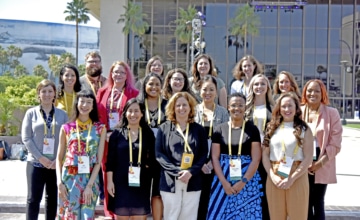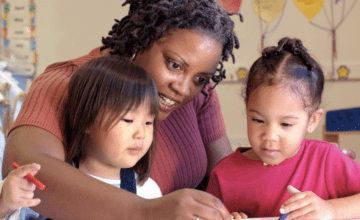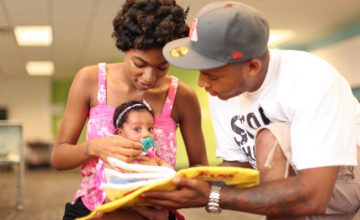Despite proven track record, program reaches only 7% of eligible babies and toddlers
WASHINGTON —The following statement regarding the 25th anniversary of Early Head Start should be attributed to Myra Jones-Taylor, Chief Policy Officer, ZERO TO THREE:
“ZERO TO THREE is delighted to celebrate 25 years of Early Head Start’s (EHS) support of pregnant women, infants and toddlers living in poverty to ensure that families have what they need to thrive. But we must do more if we are to truly maximize its impact.
“Evidence-based and community-driven, EHS programs use a comprehensive, two-generational approach to support healthy prenatal outcomes, build strong parent-child relationships, and enhance the intellectual, social, and emotional development of infants and toddlers to promote later success in school and life.
“As EHS has moved from early promise in 1994 to established practice, it has created crucial opportunities for both parents and children. By supporting early development, EHS helps parents ensure their children are on a solid path to engage in lifelong learning, while simultaneously strengthening their family’s stability and economic prospects. It is the only federal program specifically focused on the early learning experiences of babies and toddlers living in families with very low incomes.
“The science is clear – our brains grow faster between the ages of 0 and 3 than at any later point in our lives, forming the foundation for lifelong learning and success. Research has shown that children in EHS displayed positive impacts at ages 2 and 3 that matter deeply to school readiness, including enhanced cognitive and language skills, decreased aggressive behaviors, increased engagement with parent during play and increased rates of immunization. Parents involved in EHS also were shown to be more emotionally supportive, provide more support for children’s language development and learning and were less likely to use harsh discipline strategies such as spanking. Engaging families during pregnancy yielded stronger outcomes for the child. And, the positive effects of EHS extend beyond early childhood development. Enrollment in EHS has been shown to promote parents’ participation in education and training as well as their employment.
“But despite the program’s effectiveness, its funding level means it reaches very few eligible families. According to the State of Babies Yearbook: 2019, 93 percent of infants and toddlers in the U.S. who are eligible for EHS are not currently being served. Since EHS funds flow directly from the federal government to local programs, the reach varies greatly by state and even by community.
“Building on the proven track record set by the program over the past 25 years, our leaders must act to ensure that children and families in poverty are provided with real opportunities to reach their full potential. ZERO TO THREE urges federal and state leaders to identify ways to sustain and expand access to EHS services for families who are most likely to need its support.”
About ZERO TO THREE
ZERO TO THREE works to ensure all babies and toddlers benefit from the family and community connections critical to their well-being and development. Since 1977, the organization has advanced the proven power of nurturing relationships by transforming the science of early childhood into helpful resources, practical tools and responsive policies for millions of parents, professionals and policymakers. For more information, and to learn how to become a ZERO TO THREE member, please visit zerotothree.org, facebook.com/ZEROTOTHREE or follow @ZEROTOTHREE on Twitter.



